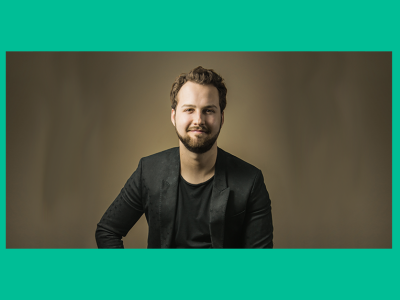The global job market is in turmoil. The COVID-19 pandemic, which easily ranks as the worst health crisis in a century, has rocked all of the world’s major economies. And national rates of unemployment have ballooned over the last several months.
If you’re uncertain about your future career, you’re not alone. You might be beginning undergraduate studies, have recently graduated, or are already in employment but considering a change of direction. Whatever your personal situation, making sense of the job market during these unprecedented times is incredibly difficult, particularly when it comes to identifying opportunities and imagining a post-COVID-19 world.
We invited Dr. Nuria Soler Aguilar to discuss these important issues. Nuria is a certified executive coach with years of experience in leadership development roles. She currently works for the European Investment Bank, an organisation that allocates funding to EU projects and is the world’s largest multilateral lender. She attended EU Business School, completing an MBA (Summa cum Laude) in 1990 and a doctorate in 2019.
In this post, we round up the main points from her presentation titled, “Job Success in Times of COVID.”
1. Making Sense of the Labour Market: “Uncertainty Is the Only Certainty”
Dr. Aguilar began by emphasizing the reach and severity of the COVID-19 pandemic. She said that while it is difficult to predict the full extent of any future economic fallout, all the current indicators are pointing towards a severe Europe-wide recession followed by a sharp rise in unemployment. And this crisis will inevitably impact the labor market, with markedly fewer jobs for young people and graduates.
Because of this rather bleak outlook, individuals preparing to begin their careers face a unique set of challenges. In particular, graduates are likely to find it more difficult to find work and should expect lower-paying jobs compared to pre-recession opportunities.
What’s more, large parts of the recruitment process, encompassing career fairs, internships, interviews and so on, have shifted online. Drawing on experience at her own organization, Dr. Aguilar said that this kind of digitalization would continue well into the future.
Many companies are reducing staff intake in response to the pandemic. Dr. Aguilar cited one statistic taken from Indeed.com, which stated that the number of new vacancies in Europe has decreased by 50%, while graduate recruitment is down by 12%, especially among small and medium-sized enterprises (SMEs). Eurostat, the European Commission’s primary data-gathering department, has published statistics showing that 40% of job losses are comprised of employees under twenty years old.
2. What’s Next for Students and Graduates?
Despite a pessimistic outlook overall, Dr. Aguilar was quick to make one vital point: where there are problems, there are also opportunities.
Firstly, the demand for some jobs, especially in the tech and health spaces, has grown. Positions with increased demand include computer and information systems managers, financial managers, marketing managers and mathematicians, among many others.
Secondly, corporate employers have adopted a number of positive employee-focused initiatives in response to the pandemic. These include, but are not limited to, honest and open communication from managers, a greater allocation of resources to employee wellbeing, opportunities for self-guided learning, and infrastructure designed to foster trust and collaboration among remote teams.
Graduates that can bring skills and mindsets consistent with this new corporate atmosphere are much more likely to stand out and make themselves attractive to employers with limited resources and downsized recruitment programs.
3. How Can Students Prepare for a Fulfilling Career?
In the second part of her presentation, Dr. Aguilar focused on practical tips for individuals entering the labor market or pivoting to a new career. She outlined several ways that applicants can increase their chances of getting their preferred job.
She began by highlighting the importance of interviewing well. Candidates need to do better than the hundreds – yes, hundreds – of other people applying for the same job. And preparing for success in interviews begins with the right kind of mindset. Specifically, candidates should foster a positive, motivated, persistent mindset that isn’t averse to taking risks. Dr. Aguilar said that attitude is equally, if not more, important than qualifications and experience.
In terms of communication, applicants should be clear, precise and respond directly to questions. Specificness is also crucial, and Dr. Aguilar recommends clarifying in advance how past experiences relate to specific demands of the job.
The “STAR” framework can be beneficial in this regard. If asked to describe why you are suited to a particular aspect of a job, you can do so using the following template (examples shown in italics):
- SITUATION – Employee satisfaction was decreasing.
- TASK – Increase employee engagement by 10%.
- ACTION – Create an engagement-building program.
- RESULT – Overall engagement increased by 15%.
She went on to talk about the role of vision. Having a “vision” is fundamentally about self-knowledge. “What are my values and how do I want to change the world?” is an excellent question to ask yourself. Dr. Aguilar said that an applicant’s talents and skills are secondary to the desire to do meaningful work and take up a position because it fits with their values.
She also highlighted the relevance of kindness. The individualistic “dog eat dog” mentality, so often associated with the corporate world, is no longer attractive to employers. Instead, modern companies are looking for individuals that can collaborate, deal compassionately with conflict and learn from others with whom they disagree.
Finally, Dr Aguilar rounded off her talk with some simple advice: “Practice, practice and practice again!” Develop your elevator pitch, ask for feedback about your interview skills, build the habit of giving precise answers and so on.
Prepare for a post-COVID-19 World With EU Business School
If you are considering a career in the corporate world, perhaps in a sector that you are passionate about or at the head of your own startup, then a degree from EU Business School will put you in the best possible position for success. You’ll gain all the skills, knowledge and practical experience that you need to thrive in your chosen field.
We offer a range of courses, including a wide selection of Bachelors, Masters, and MBA degrees. As a student, you’ll have the option to choose from several European campuses, all located in exciting European business capitals.










